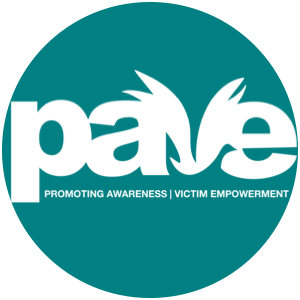LGBTQ+ Survivors & Barriers to Seeking Support
People in the LGBTQ+ communities experience a higher rate of sexual violence due to stigma, marginalization, poverty, and hate-motivated offenses. While seeking support for any traumatic experience, there are already tough barriers that have to be faced such as not being believed when coming forward. Unfortunately, in addition to these obstacles, the LGBTQ+ communities have even more barriers to encounter.
Starting off with disclosing their identities or sexual orientation. The fear of being discriminated against or being denied help can give LGBTQ+ hesitation to seek support or report. Additionally, if the survivor proceeds with asking for support and isn’t taken seriously or not given inclusive care, this can further the trauma they have experienced and hold them back from seeking support in the future.
Also, people who have not yet come out and are not ready to may keep what happened hidden just to not out themselves.
As mentioned on Rainn.org, Many survivors of sexual violence experience a loss of control during an assault, so for LGBTQ survivors, being outed without their consent can further this trauma and is potentially dangerous,” said Sorensen. “For instance, a survivor may be at risk of further violence or discrimination if outed to someone who is not supportive of their identity.”
This is extremely important and can very much be a deal-breaker for some survivors when seeking help. Furthermore, if assault was perpetrated by an LGBTQ+ partner, there might be some unease on reporting them because of the implications it might reflect on the community.
Ways to support/react:
Listen -It is hard for survivors to talk about what they have been through. Disclosing can be even more difficult for LGBTQ+ survivors who may face additional barriers when coming forward with abuse. This is your responsibility to listen, try to understand, and be there to support them. It is not easy retelling a traumatic experience, so giving them your full attention can help them feel heard and validated.
Validate and express concern - They are going through a hard time that takes time to heal, so saying things like “it will get better” or “just give it time” might not be as helpful as you think. Try more affirming and reassuring words like “ I am here for you”, “you are not alone”, “I believe you,” “how can I best support you right now?,” or “I care and I stand with you.”
Affirming language - In addition to expressing concern, don’t ask for more details. Let them come to you and have empathy on their behalf. Needless to say, don’t assume their gender if this is the first you hear about their situation and identity. Refer to them as “they/them” , use language like “partner” and unless told otherwise!
Survivors of the LGBTQ+ communities may face additional barriers when seeking support after trauma. Always remember, if an LGBTQ+ survivor discloses to you: actively listen to them, believe them, respect their boundaries, use correct pronouns, don’t make assumptions, and most of all help them seek out the right support networks and inclusive resources to support them.
Here are a few resources that can help you or a loved one:
Trevor Project
Call or Text: 1-866-488-7386
FORGE online resources
https://forge-forward.org/resources/service-providers-2/
LGBT National Help Center
Call: 888-843-4564
Email: help@LGBThotline.org
For more links and resources click the link below:
https://www.fear2freedom.org/bethechangeblog/2020/6/18/support-services-for-lgbtq-survivors-1
Sources:
https://www.rainn.org/articles/lgbtq-survivors-sexual-violence
https://www.hrc.org/resources/sexual-assault-and-the-lgbt-community
https://www.rainn.org/news/barriers-reporting-sexual-violence-lgbtq-communities
Written By: PAVE’s Social Media & Marketing Intern, Jennifer Martinez
